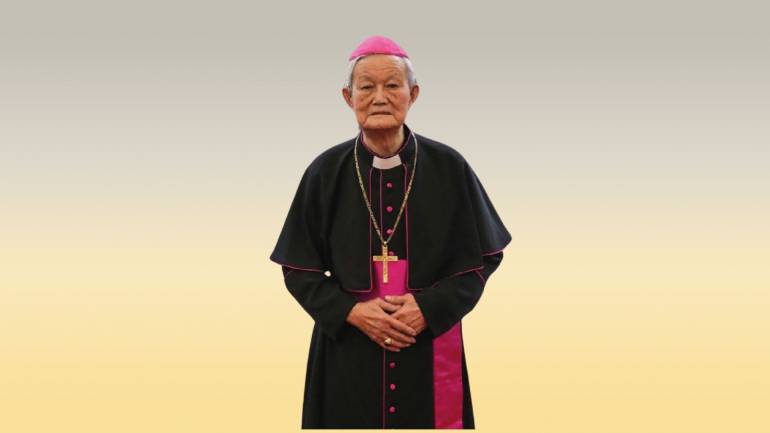Chinese govt officially recognizes appointment of Tianjin bishop

The Holy See announced that the Chinese government has officially recognized under civil law Bishop Melchior Hongzhen Shi as the bishop of Tianjin.
In a communiqué dated August 27, the Vatican described this decision as a “positive fruit” of the dialogue established over the years between China and the Catholic Church.
The 95-year-old prelate will be shepherding a diocese with approximately 56,000 faithfuls distributed in 21 parishes, the Holy See reported.
Alongside him are 62 priests and “a good number” of religious sisters.
Bishop Shi was ordained priest on July 4, 1954, and coadjutor bishop of Tianjin on June 15, 1982.
On June 8, 2019, he was appointed to succeed Tianjin Bishop Li Side.
Through the efforts of Pope Francis, the Holy See began expanded dialogues with Christian-minority nations in Asia, particularly in China where a separate government-backed church exists.
Bishop Shi had been placed under house arrest after refusing to join the church supported by the Chinese Patriotic Catholic Association (CPCA) and remained loyal to the so-called “underground” Church in union with the pope in Rome.
One major step to unite the two churches took place in 2018 with the signing of the Sino-Vatican Agreement.
Considered a “secret deal” due to its contents never being made public, it is assumed to have allowed the Catholic Church to install bishops in communion with Rome and, at the same time, recognized by Chinese authorities.
It was initially seen as provisionary, but it has been implemented for nearly six years.
The deal had a duration of two years and has been renewed twice in 2020 and 2022 for an additional two-year period. It is set to expire again in October.
The Vatican pushed their dialogue with China further in 2021 with the visit of a Holy See delegation to the Asian nation led by Archbishop Claudio Maria Celli, a member of the then-Congregation for the Evangelization of Peoples (now Dicastery for Evangelization).
The following year, in 2022, another delegation from the Holy See was sent to China to meet with the local authorities in Tianjin.
Radio Veritas Asia (RVA), a media platform of the Catholic Church, aims to share Christ. RVA started in 1969 as a continental Catholic radio station to serve Asian countries in their respective local language, thus earning the tag “the Voice of Asian Christianity.” Responding to the emerging context, RVA embraced media platforms to connect with the global Asian audience via its 21 language websites and various social media platforms.














